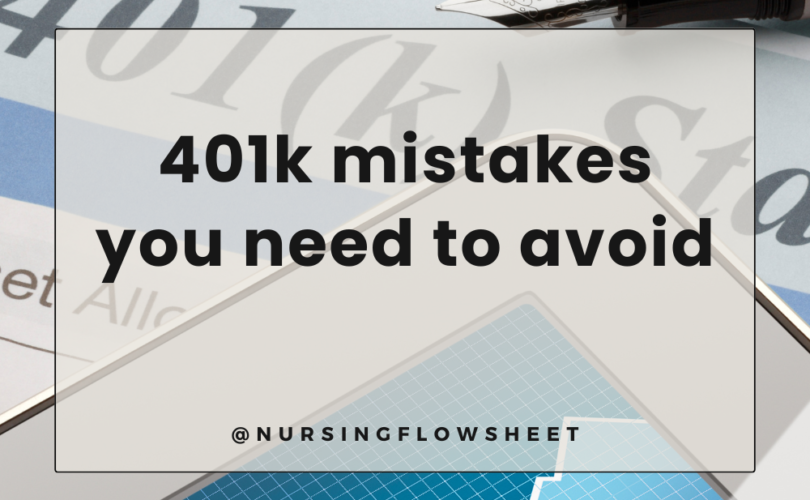Investing in a 401k retirement plan is a significant step toward securing your financial future. However, it’s easy to make mistakes that can cost you time, money, and peace of mind. Whether you’re just starting your career or approaching retirement, here are five common mistakes to avoid with your 401(k) retirement account.
1. Not Contributing Enough to Get the Employer Match
One of the most significant advantages of a 401(k) is the employer match. Many employers will match your contributions up to a certain percentage of your salary, essentially offering free money toward your retirement. Failing to contribute enough to get the full match is leaving money on the table.
Avoid This Mistake: Always aim to contribute at least enough to maximize your employer’s match. If your employer matches 50% of your contributions up to 6% of your salary, you should contribute at least 6% to get the full match.
2. Ignoring Investment Fees
Investment fees can significantly erode your 401(k) balance over time. These fees come in various forms, such as expense ratios for mutual funds, administrative fees, and management fees. Even seemingly small fees can add up and have a substantial impact on your savings.
Avoid This Mistake: Take the time to understand the fees associated with your 401(k) investments. Compare different funds and consider low-cost index funds or ETFs, which typically have lower fees than actively managed funds.
3. Failing to Diversify Your Investments
Putting all your 401(k) contributions into a single stock or sector is risky. Lack of diversification can expose your retirement savings to significant volatility and potential losses.
Avoid This Mistake: Diversify your 401(k) investments across different asset classes, such as stocks, bonds, and international funds. A well-diversified portfolio can help manage risk and improve the potential for long-term growth.
4. Not Adjusting Contributions Over Time
Many people set up their 401(k) contributions when they start a job and then forget about it. However, your financial situation and retirement goals can change over time. Failing to adjust your contributions as your income grows can lead to inadequate savings.
Avoid This Mistake: Regularly review and increase your 401(k) contributions, especially when you receive a raise or bonus. Aim to contribute a higher percentage of your salary as you get closer to retirement to ensure you’re on track to meet your goals.
5. Cashing Out Early
It can be tempting to cash out your 401(k) if you switch jobs or face a financial emergency. However, early withdrawals come with steep penalties and taxes, reducing your retirement savings significantly.
Avoid This Mistake: Instead of cashing out, consider rolling over your 401(k) into an IRA or your new employer’s plan if you change jobs. If you’re facing financial hardship, explore other options like a 401(k) loan, which allows you to borrow against your savings without the same penalties.
Final Thoughts
Your 401(k) is a powerful tool for building a secure retirement, but it requires careful management to maximize its potential. By avoiding these common mistakes—missing out on the employer match, ignoring fees, failing to diversify, not adjusting contributions, and cashing out early—you can help ensure that your 401(k) works hard for you throughout your career and into retirement. Take control of your financial future today by reviewing your 401(k) strategy and making any necessary adjustments.







